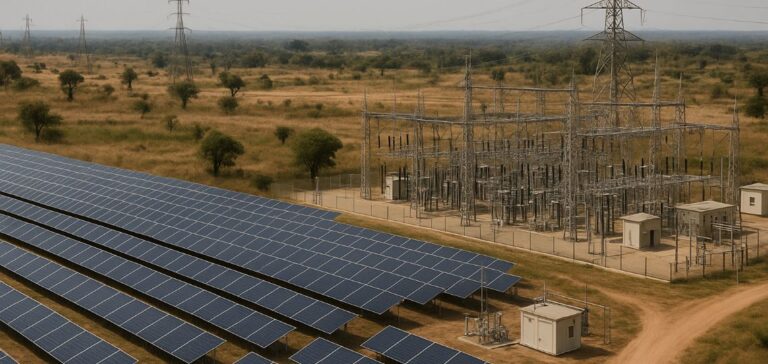Grid Africa, a regional provider of energy solutions, and TCL Solar, a photovoltaic technology specialist, have announced an alliance to deploy distributed solar systems coupled with battery storage in Zambia and Zimbabwe. The initiative comes amid persistent electricity shortages across sub-Saharan Africa.
A response to grid fragility
According to both companies, the current transmission and distribution infrastructure in the two countries offers a sufficient base for decentralised energy solutions. The governments of Zambia and Zimbabwe have recently introduced reforms facilitating grid access for independent power producers, enabling faster deployment of more agile energy models.
TCL Solar will provide technological support focused on modules designed for high-radiation environments, using tunnel oxide passivated contact (TOPCon) technology. The company also commits to full logistics support to ensure consistent delivery of equipment to often hard-to-reach areas.
A dual-impact development model
As part of this strategy, Grid Africa has already launched several national initiatives. In Zimbabwe, an agreement has been signed with Huawei to develop a 72-megawatt solar plant dedicated to the mining sector, which has been particularly affected by power outages. In Zambia, hybrid solutions combining solar panels, batteries and backup generators have been deployed to strengthen energy reliability.
“We have a unique opportunity to reverse our overdependence on utilities,” said Norman Moyo, Chief Executive Officer of Grid Africa. He compared this shift to the transformation of the telecommunications sector in Africa through mobile technology, stating that a distributed model could have a similar impact on energy security.
Towards regional model replication
The two partners aim for a rapid rollout by relying on existing networks to minimise investment in new infrastructure. The goal is to ensure progressive integration of industrial sites and remote rural zones within a more resilient energy model.
This partnership is part of a broader regional strategy that could be extended to other Southern African countries facing similar energy access challenges and reliance on centralised utilities. The ongoing projects will serve as a benchmark for potential replication elsewhere on the continent.






















